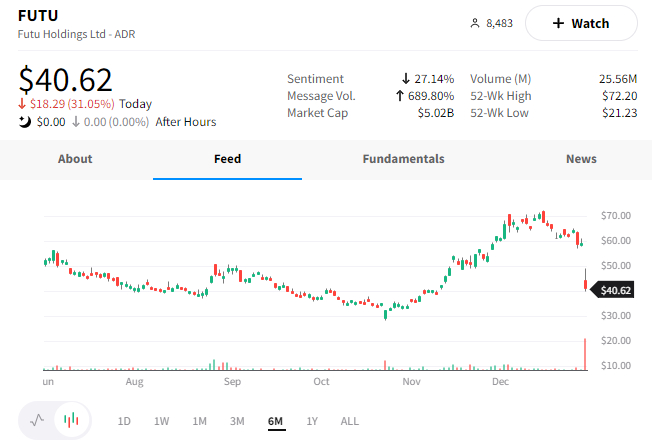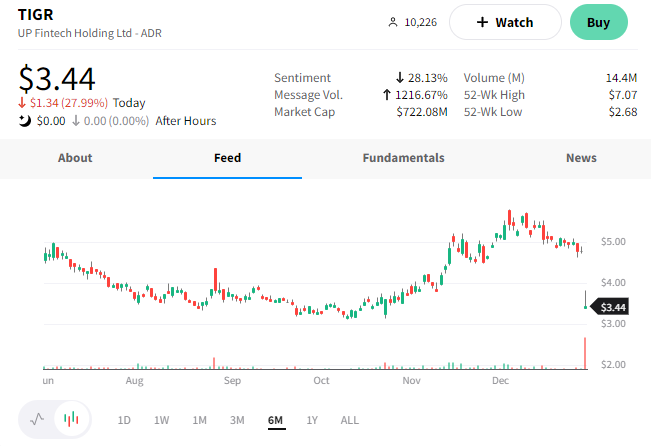Last year, Chinese officials began looking to crack down on mainland clients using offshore trading services. Many believed New York-listed Futu Holdings and UP Fintech Holdings would face regulatory risks because they lack licenses in China. 🚨
Unfortunately for investors, that risk has come to fruition. Today, China’s securities regulator banned the companies from opening new accounts with mainland Chinese investors.
The new rules will allow existing customers to continue trading. However, brokerages will have to take corrective measures to prevent money from mainland clients from entering their platforms. In short, no new money can unlawfully flow into their accounts.
The news comes just a day after Futu delayed its listing plan in Hong Kong, stating it was “clarifying certain matters” with the Hong Kong Stock Exchange.
Today’s ban hits $FUTU‘s business particularly hard, given its 2020 annual report said that a large number of its clients were mainland Chinese citizens. The company’s shares are down roughly 31% today, erasing all their year-to-date gains. 📉

Meanwhile, shares of UP Fintech Holdings ($TIGR) are down 28%. 🔻

